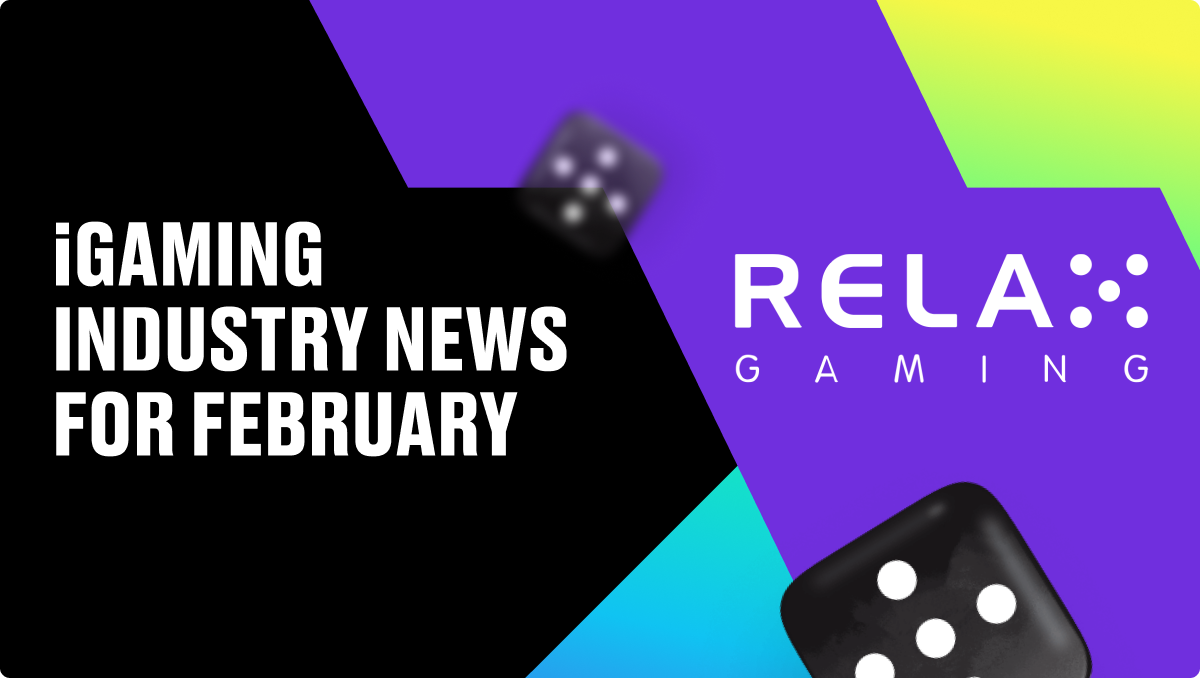
Relax Gaming Enters Brazil and Peru
Relax Gaming has expanded its presence in Latin America, officially entering the regulated markets of Brazil and Peru as of 1 January 2025. This follows previous launches in Mexico (2021) and Colombia (2022), further strengthening its foothold in the region.
As part of this expansion, more than 40 of Relax Gaming’s most popular titles are now available through major gaming platforms, including Kaizen, Bet365, Paddy Power and Betfair in Brazil, as well as Betsson and SkillOnNet in Peru. The company is also integrating third-party content via its Silver Bullet aggregation programme, broadening the range of games available to local players.
Latin America remains a strategic focus for Relax Gaming, given the region’s rapid growth in the iGaming sector. The company’s participation in the upcoming SBC Rio Summit highlights its commitment to increasing market visibility.
With a portfolio exceeding 4,000 online casino games, including proprietary titles and aggregated content, Relax Gaming has earned multiple industry awards, such as Best Mobile Gaming Software Provider at the EGR B2B Awards and Casino/Slot Developer of the Year at the SBC Awards.
Commenting on the expansion, Alexia Smilovic Rønde, Chief Regulatory Officer at Relax Gaming, described Brazil’s shift towards regulated online gambling as one of the industry’s most exciting developments, while noting Peru’s strong potential. She emphasised that Relax Gaming is well positioned to capitalise on these opportunities with licensing and responsible gambling measures in place.
Maryland and New York Face Roadblocks in Online Casino Legalisation
Efforts to expand iGaming in Maryland and New York are facing significant resistance, with industry stakeholders and policymakers slowing progress.
In Maryland, opposition is being led by land-based casino operators such as Penn Entertainment (Hollywood Casino Perryville) and Cordish Companies (Maryland LIVE!). These businesses argue that online gambling could divert customers from physical casinos, cutting into their revenues.
State Representative Ronald Watson, sponsor of House Bill 17 (HB 17), has dismissed these concerns as a “fallacy,” pointing to Maryland’s estimated $200 million illicit gambling market as a key reason for regulation. Supporters also highlight Pennsylvania’s experience, where retail slot revenue rose by 11% and online gambling revenue grew by 18% after legalisation.
However, not all industry voices are convinced. Mark Stewart, a representative of Cordish Companies, argues that while revenue figures may look promising, job creation has been minimal. He pointed out that his company hired only one employee in Pennsylvania for its online casino operations compared to over 3,000 for its land-based venues.
While HB 17 remains stalled, not all stakeholders oppose iGaming. Alyse Cohen, owner of Longshot’s sportsbook, has argued that online and retail gambling can complement rather than compete with each other.
In New York, the obstacles are primarily political. Despite being the highest-grossing gambling state in the US, iGaming expansion has struggled to gain momentum.
State Representative Gary Pretlow’s Senate Bill 2614, which aims to legalise online casinos, has met resistance, particularly from Assembly Racing and Wagering Committee Chairwoman Carrie Woerner. In a recent interview with City & State, Woerner expressed little enthusiasm for the bill, suggesting its chances of success are slim.
Her reluctance may stem from her district’s deep ties to horse racing, home to venues such as Saratoga Casino Hotel and Saratoga Racecourse. Even if the legislation moves forward, industry opposition similar to that seen in Maryland could create further hurdles.
With Governor Kathy Hochul and other key figures yet to show meaningful support, the future of iGaming legalisation in New York remains uncertain.
SOFTSWISS Showcases Certified iGaming Solutions at SBC Summit Rio 2025
SOFTSWISS took part in the SBC Summit Rio 2025, a leading sports betting and gaming event held in Rio de Janeiro from 25 to 27 February. This marked the company’s first appearance as a certified iGaming solutions provider in Brazil, reinforcing its commitment to the growing Latin American market.
Ahead of the event, SOFTSWISS highlighted recent certifications that strengthen its position in the region. In late 2024, the company received Brazilian certification for its Game Aggregator, a platform that hosts over 27,800 games from more than 280 providers. More recently, in 2025, SOFTSWISS obtained certification for its Jackpot Aggregator, further expanding its suite of solutions for regulated markets.
Carla Dualib, Regional Business Development Manager for Latin America at SOFTSWISS, emphasised the significance of the event, noting that it brings together industry leaders and key figures in Brazil’s gaming sector. She added that the company looks forward to deepening relationships with existing partners while establishing new collaborations to support long-term growth in the region.
During the summit, SOFTSWISS introduced its networking lounge, offering a dedicated space for clients and industry professionals to explore partnership opportunities with the company’s team. Local representatives also shared insights on Brazil’s iGaming market, discussing short-term trends and the potential for further expansion.
Beyond Brazil, SOFTSWISS continues to grow its presence in Latin America, having recently secured Game Aggregator certification in Peru. This certification allows operators in the region to access the company’s technology, reinforcing its strategy under the leadership of Rubens Barrichello, Non-Executive Director for Latin America. The company remains focused on compliance with local regulations while aligning its offerings with regional gaming preferences.
IGT Expands Whitney Houston Slots to Eight European iGaming Markets
International Game Technology (IGT) has expanded its PlayDigital portfolio with the online launch of Whitney Houston Slots in eight European iGaming markets. Originally introduced in land-based casinos in June 2024, the game is now available to players in Italy, the Netherlands, Spain, the United Kingdom, Denmark, Greece, Sweden, and Romania.
The slot features four jackpot levels, video footage and images of Whitney Houston, and a soundtrack including some of her most iconic hits, such as I Wanna Dance with Somebody (Who Loves Me) and How Will I Know. Upon its initial release on IGT’s SkyRise cabinet, the game was named the top-performing new wide-area progressive (WAP) title in Eilers & Krejcik’s industry report.
Gil Rotem, President of IGT PlayDigital, described Whitney Houston Slots as a high-performing game that appeals to both slot players and music fans. He added that bringing it to online platforms extends its reach and aligns with IGT PlayDigital’s strategy of delivering high-quality omnichannel content.
Looking ahead, IGT has confirmed that the game will launch in North American iGaming markets later in 2025 as part of its plan to bring land-based content online in regulated jurisdictions.
This expansion follows IGT PlayDigital’s recent entry into Denmark, where it partnered with NetBet Denmark earlier this month. The deal gave Danish players access to several of IGT’s popular slot titles, including Cleopatra Christmas, Golden Goddess, and Pixies of the Forest. NetBet Denmark has been actively growing its content selection, adding games from multiple suppliers.
Philippines Strengthens AML Measures After FATF Delisting, Targets iGaming and Crypto Risks
The Philippines has officially been removed from the Financial Action Task Force’s (FATF) grey list, marking progress in anti-money laundering (AML) and counter-terrorism financing (CTF) efforts. This achievement reflects improved financial oversight and stronger inter-agency coordination.
Choon Hong Chua, Moody’s Head of Financial Crime Practice for the Asia-Pacific and Middle East, noted that the delisting would boost investor confidence. However, he cautioned that money laundering risks persist, particularly in online gaming and cryptocurrency. The Philippine iGaming industry, which generated P112 billion in revenue in 2024, remains a key focus for regulatory oversight.
Johanna Chua, Citi’s Head of Emerging Markets Economics Research, warned that delisting alone may not drive a significant increase in foreign investment, highlighting the need for improvements in infrastructure and supply chains. Meanwhile, a 2024 UNODC report raised concerns about casinos, junkets, and cryptocurrency platforms being linked to illicit financial activities across East and Southeast Asia.
In response, PAGCOR Chairman and CEO Alejandro H. Tengco reaffirmed the agency’s commitment to combating financial crime across online gaming, land-based casinos, and junket operations. Former Finance Secretary Jesus P. Estanislao added that the delisting helps restore the Philippines’ global reputation and reinforces its stance against financial misconduct.
As the country moves forward, regulators are focused on maintaining financial stability while addressing risks in iGaming and cryptocurrency within an evolving global market.

